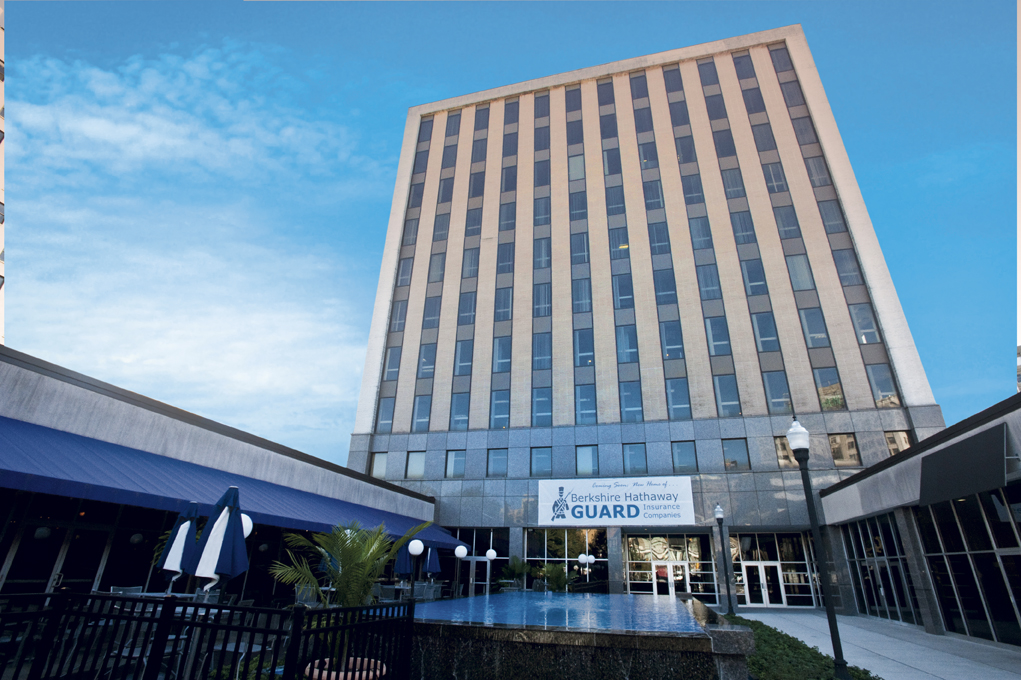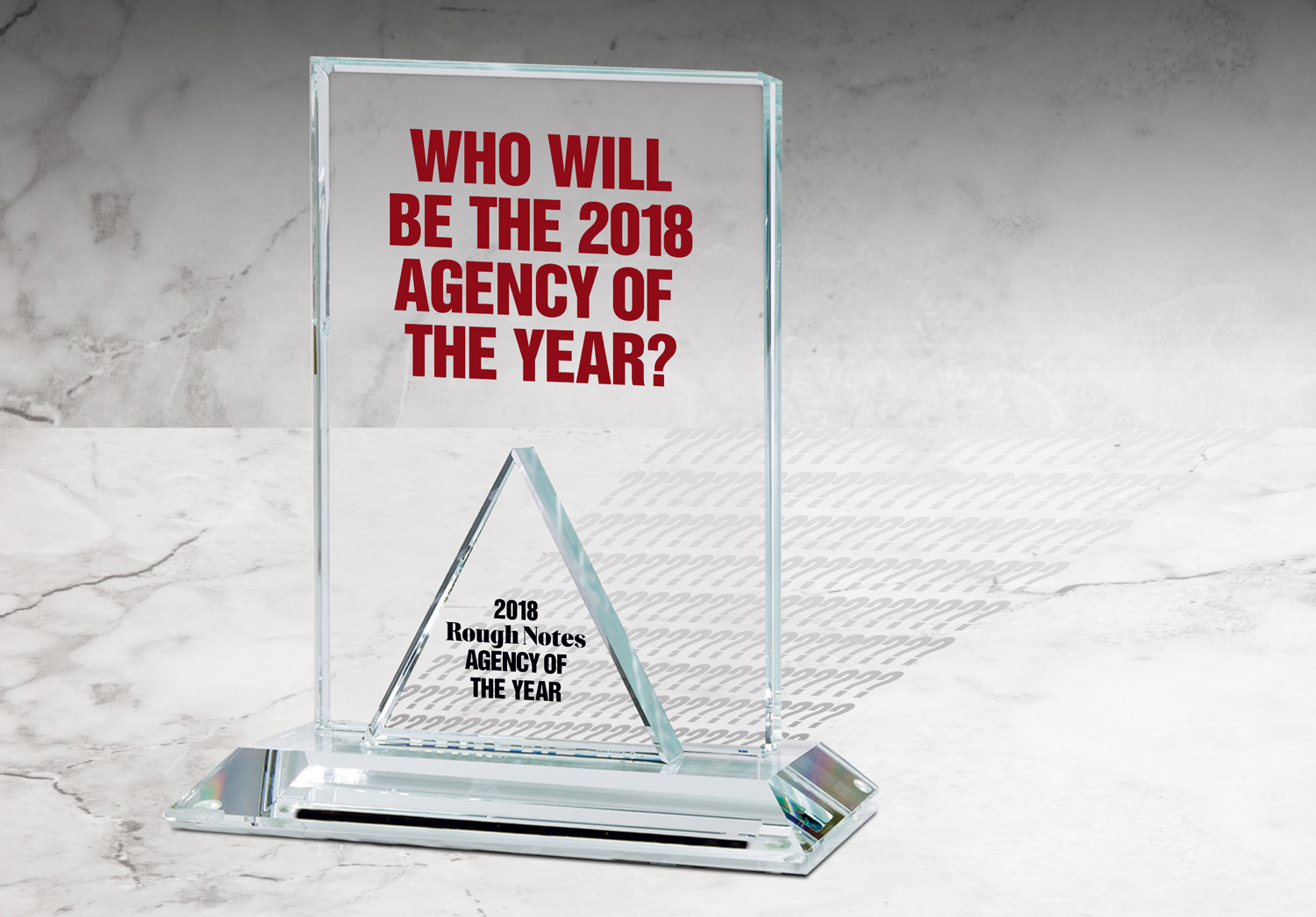AGENCY PARTNERS
A WELL-OILED MACHINE
Berkshire Hathaway GUARD shifts gears smoothly to drive costs down and profits up
By Elisabeth Boone, CPCU
It’s a long way from Wilkes-Barre, Pennsylvania, to Tel Aviv, the business capital of Israel, and it’s a journey Sy Foguel made many times while assuming the top post at the Berkshire Hathaway GUARD Insurance Companies. Since accepting the position in 2007, Foguel has combined sound actuarial principles with an unerring market sense to produce results that are nothing short of astonishing.
For starters, what do you think about a five-year combined ratio of 84.6%? Now that you’ve picked yourself up off the floor, let’s find out how Foguel and his executive team have been blazing trails and breaking records as they build out their portfolio of products.
First, some history.
Established in 1982, the original GUARD companies were AmGUARD Enterprises, a holding company; AmGUARD Insurance Company; and InterGUARD, Ltd., a service organization. In 2007 GUARD was purchased by Clal Insurance Enterprises Holdings, Ltd., parent of leading Israeli insurer
Clal Insurance, where Foguel served as chief actuary and executive vice president of business development before being named chief executive officer of GUARD.
In 2012, thanks to the efforts of Berkshire Hathaway, Inc. Vice Chair Ajit Jain, the GUARD group became a wholly owned subsidiary of National Indemnity Company, which in turn owned by Berkshire Hathaway. The organization was rebranded Berkshire Hathaway GUARD Insurance Companies in 2013. It carries an A.M. Best rating of A+ Superior, and member companies distribute their products through a network of independent agents and brokers.
Its AmGUARD Insurance Company writes workers comp, businessowners, and commercial umbrella nationwide and offers commercial auto, professional liability, and disability insurance in selected states. EastGUARD Insurance Company writes workers comp and offers accompanying services to small and mid-sized businesses in selected states. NorGUARD Insurance Company writes comp nationwide and complementary businessowners and excess or umbrella policies in New York and Georgia. WestGUARD Insurance Company provides commercial insurance and services to small and mid-sized businesses directly and through the subsidiaries described above.
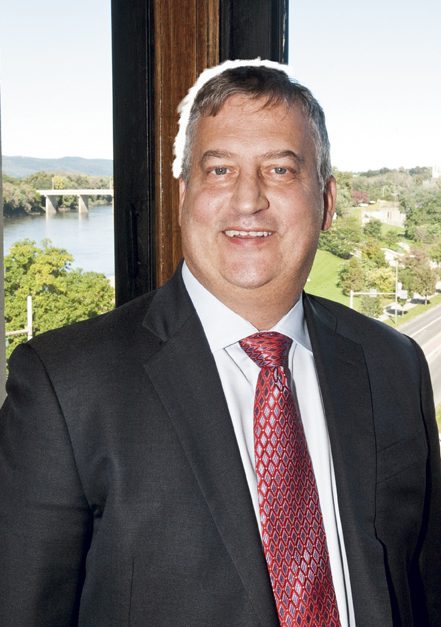
-Sy Foguel, ACAS, FILAA
Chief Executive Officer and President
A visit to Wilkes-Barre
In 2006, while Foguel was business development executive vice president for Clal Insurance, the company decided to expand to the United States; Foguel started exploring ways to do that. “We were prepared to invest between $40 million and $200 million, so I looked at small companies,” Foguel recalls. “After six months of searching I hadn’t found anything suitable, and the banker we were working with suggested I go to Wilkes-Barre, Pennsylvania, to meet with the owners of the GUARD companies, which wrote workers compensation.” The group was near the bottom of Foguel’s list of companies Clal might acquire and his expectations were low.
“We weren’t looking for a monoline insurer,” Foguel continues, “especially one that specialized in workers compensation, because it’s such a heavily regulated line. When I met the GUARD team, however, I was very impressed, first with the automation system they had developed.” (Foguel is an honors grad in computer engineering and mathematics at Hebrew University.) “The company had created a highly efficient process for interaction between the underwriting and sales teams,” he remarks.
“I also was impressed that the entire work force was well educated, disciplined, and loyal, and that the corporate culture embodied a can-do attitude.”
Back in Israel, Foguel shared his observations about GUARD with Clal Board Chair Avigdor Kaplan. “I described it to Avigdor as a billion-dollar company in a $200 million body,” Foguel says with a chuckle. “I meant that this regional monoline company could be a platform on which to build a multi-line, billion-dollar carrier. Of course, Avigdor immediately wrote down my promise that GUARD would become a billion-dollar company and made that my business plan.” The team achieved that goal quite quickly.

Making it happen
Building the GUARD companies into that multi-line, billion-dollar organization required discipline, focus, and a lot of hard work. “The goal was clear from the outset,” Foguel asserts. “We would become a one-stop P-C shop for independent agents.”
GUARD’s growth since 2007 has been based on three key initiatives, Foguel explains. “Our first objective was to expand from a regional to a national company. Among other things this allows us to write national franchises with locations across the country. Our second step was to add lines of business and products. As long as we were just a workers comp company, we were not of much interest to independent agents because we offered just one specific program. We added businessowners, umbrella, commercial auto, and professional liability products to complement the workers comp program.
“We believe it’s just as important to know what not to write as what to write.”
-Sy Foguel
“Third, we wanted to offer our agents the broadest possible appetite, so from a company that targeted small to mid-sized accounts we’ve expanded to the point where we can accommodate large mid-market accounts that generate significantly higher premiums.”
Implementing these strategies, GUARD has grown at a rate of 20% to 25% per year, Foguel notes—an impressive achievement in light of the intensely competitive commercial lines market. “We believe that this rate of growth enables us to control and manage our growth. When you go into new lines the initial results may be mediocre, and we can learn and make adjustments along the way.”
He’s quick to acknowledge that luck also has played a role. “Our dominant line continues to be workers comp, and along with the other insurers in this market we’re enjoying strong results,” he observes. “I think this trend started in 2010 and 2011. In those years we saw a big jump in comp claims, including catastrophic claims. In response the state bureaus started filing for significant rate increases in 2012, 2013, and 2014.
“By 2015, the rates were very high,” Foguel adds, “and at the same time the claims experience began to improve dramatically. Workers compensation insurers recorded highly favorable accident year results in 2015, 2016, and 2017. Over the last couple of years, the bureaus have begun to file for significant rate decreases, so I expect the loss ratio to start going up in 2019 and beyond.”
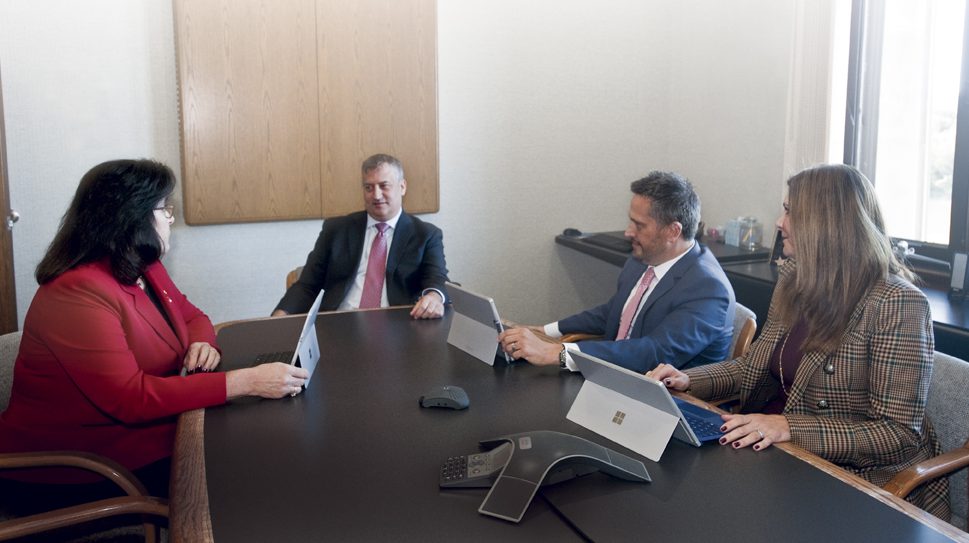
How low can you go?
As mentioned earlier, over the last five years GUARD has posted a combined ratio of 84.6%, which by any standard is a solid achievement. “The market overall probably has a combined ratio in the low 90s, so we’re comfortably below that mark,” Foguel says.
What’s the secret? “We measure everything,” he explains. “We have a strong actuarial department and an equally strong unit that is responsible for strategy and analytics. We’re a highly disciplined company, and we bring sophisticated analysis to pricing, underwriting, and claims. We have strict underwriting guidelines and underwrite to the numbers. We believe it’s just as important to know what not to write as what to write. Our discipline and attention to detail are what make us stand out from competitors.”
Foguel also credits a robust claims handling operation for contributing to the company’s low workers comp combined ratio. “We have four separate claims departments,” he says. “One unit handles only medical claims. Second is the Special Investigations Unit (SIU), which investigates suspicious claims to prevent fraud. Third is the Early Intervention Unit (EIU) that assigns nurses to work with employees who have been injured on the job and are expected to return to work within a fairly short period of time. A complex claims department deals with larger and more complicated cases.
“We wanted to offer our agents the broadest possible appetite, so from a company that used to target small to mid-sized accounts we’ve expanded to the point where we can accommodate large mid-market accounts.”
-Sy Foguel
“We believe that our four-pronged approach is both effective and efficient and is a significant factor in controlling costs and maintaining a favorable combined ratio.”
GUARD hit the $1 billion mark in 2016 and should finish 2018 with a premium volume of over $1.5 billion. The company’s progress has drawn favorable comments from Berkshire Hathaway Founder and Chairman Warren Buffett, who at a 2016 stockholders meeting said the insurer was “doing terrifically.”
What’s on the drawing board?
Foguel is anything but complacent about GUARD’s excellent performance, and he identifies several initiatives the company is pursuing to build on its success.
“Everything we do is in support of the vision that started with Clal in 2007 and continued with Berkshire Hathaway in 2012,” he declares. “We talk a great deal with our agents about their insurance needs and how we can provide the products and services they want to offer their clients.
“We intend to continue working to become a one-stop shop for agents,” he says. “We want to further penetrate current markets. In most states we serve, we have 1% or 1.5% of the market, so there’s much opportunity for growth. We also want to become a force in personal lines by offering homeowners and personal umbrellas; we’ve rolled those products out in five states. We’ll introduce a commercial package policy to help us write more middle market accounts than we can with our current BOP product. Finally, we’ll integrate a newly licensed excess-surplus carrier, AZGUARD, into our operation to serve our agents who have clients with risks that need to be written on non-admitted paper.”
What challenges does GUARD face, and how might they represent opportunities?
“Workers compensation is not like other lines of business,” Foguel says. “It still represents about 50% of our total premium volume, and we need to pay careful attention to claims data so we can set rates that accurately reflect each policyholder’s exposures. This is an ongoing challenge and is the reason we place such great importance on collecting and analyzing data.”
As mentioned earlier, GUARD also confronts the challenge of experiencing less-than-optimum results when entering a new line of business. “We accept higher loss ratios at the beginning and focus on learning how we can improve by adjusting rates, changing underwriting guidelines, or modifying the product,” Foguel says.
“Another challenge for us as a small company is to keep up with new technologies,” he continues. “Especially given the many initiatives we’re pursuing, we can’t afford to fall behind in automation. Our broad geographic footprint with low penetration can create problems in providing services cost effectively.”
Also on the tech front, Foguel notes, GUARD is exploring ways to integrate the Internet of Things via an automated driving system with telematics, fleet management, and assisted driving.
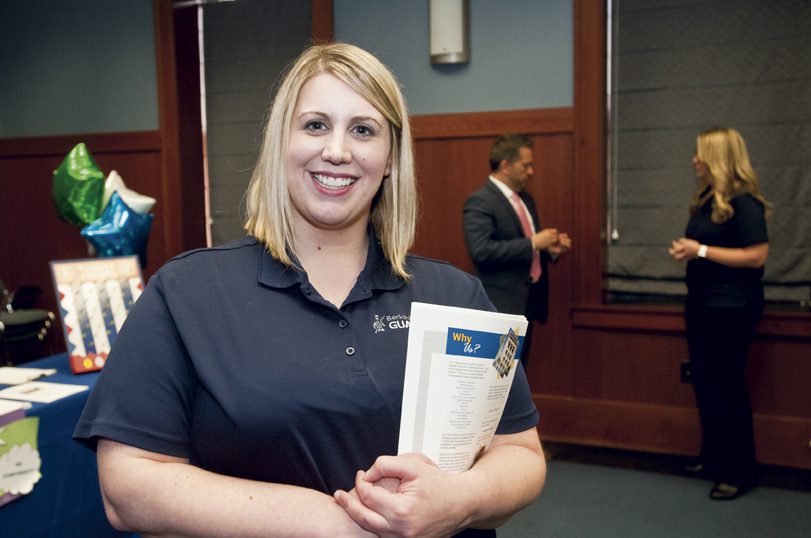
Meet the team
Foguel relies on a strong executive team to formulate and implement strategies to keep the company on its impressive track. We asked each of the five execs to explain what appealed to him about the opportunity to join GUARD. Spoiler alert: Everyone we spoke with talked in glowing terms about the company, his colleagues and fellow executives, and the opportunity to be part of an organization for which growth is achieved through a robust blend of art and science.
Chief Operating Officer and Execu-tive Vice President Carl Witkowski leads GUARD’s information and technology group and is curator of thecompany’s human capital and culture.He’s also responsible for claims processing, small and intermediate business unit underwriting, and customer service and support functions.
“GUARD has a great entrepreneurial culture, wonderful people, and a strong work ethic,” Witkowski says. “I have the responsibility and the privilege to execute on our strategy so that GUARD always outperforms its peers. That’s as true today as it was in 1988 when I started working with the company as a consultant. I saw the jewel at the heart of the company and believed that someday it would be a multi-billion-dollar company. I believed in the company enough that I changed careers and came on board in 1996 to start our managed care company and serve as human resources vice president.” Before assuming his current position Witkowski headed up the claims operation and IT unit.
Allan Kerin, FCAS, MAAA, chief actuary and executive vice president, oversees the actuarial, state filings, and technical analysis units and is instrumental in implementing the organization’s long-term business plan, which includes broadening its commercial insurance offerings.
“I joined GUARD in 2007 when it was acquired by Clal Insurance,” Kerin says. “I had worked with Sy at Arch Insurance where I served as senior actuary, and coming on board with GUARD gave me the opportunity to become chief actuary with a broad range of responsibilities. Everyone I spoke with, both at GUARD and outside the company, told me it was a great organization with people who were highly dedicated, capable, imaginative, and meticulous. Being an actuary, I particularly appreciated that last attribute,” Kerin says with a laugh. “I’m very glad I made the move, and I’m very proud of my contributions and those of my colleagues.”
Executive Vice President of Insurance Operations Marshall Kornblatt is responsible for overseeing all activities that relate to marketing and sales operations. He joined the company in 1985.

“I’ve held a variety of positions throughout my career here and have found, as Carl mentioned earlier, that we work in a highly collaborative environment,” he remarks. “I tell people that in almost 33 years I’ve never had a bad day at work. That’s because of the people. We’re an independent-agent-focused operation, and that allows us—and sometimes forces us—to be highly competitive and extremely opportunistic and maintain a culture where we rarely have to apologize to agents because we didn’t do what we promised we would do. Strong ethics, focused action, and responsibility are key values for all of us and have always been a hallmark of our company.”
Lyle Hitt, CPCU, executive vice president of property and liability insurance, oversees activities related to lines that complement the company’s workers comp offerings. He leads expansion of property and liability lines into new states and is developing complementary coverages and products such as professional liability.
Hitt is a relative newcomer, having joined GUARD in 2015 after working at Arch Insurance for 13 years. “During that time, I worked closely with Sy, and after he left the company we kept in touch,” Hitt says. “When I was looking to make a change in my career I reached out to Sy, and he asked if I would consider joining GUARD. I said I didn’t know much about workers comp, and he said he needed someone to build out GUARD’s non-workers comp business. The company already had efforts under way to broaden its product portfolio, and I worked to accelerate that process.”
CFO and Treasurer Eitan Ajchenbaum also supervises the company’s reinsurance and enterprise risk management functions, the corporate legal department, and staff in the facilities, internal audit, premium audit, and compliance and government relations units.
Ajchenbaum joined the GUARD board of directors in 2007 when the company was acquired by Clal. “In that position I got to know the company well,” he says. “In 2011 I moved to the U.S. and joined the staff as chief risk officer before assuming the position I hold now.”
The problem with being the last executive to respond to our questions is that everyone else has already said the things one intended to say. Ajchenbaum good-naturedly acknowledges this reality and says that, like his colleagues, he was attracted to GUARD because of its people and its culture. “This makes a huge difference to me,” he declares.
“I have experience with many companies and lines of business, and the environment here at GUARD is unique,” he adds. “It’s a very lean operation with a flat structure, which means we each take responsibility for our actions and hold ourselves accountable. What also appealed to me about the opportunity to join GUARD was that my experience with the company showed me that it knows how to deliver superior performance. We don’t waste our time or that of others—we perform.”
As noted, it’s a long way from Tel Aviv to Wilkes-Barre. Sy Foguel seems to have negotiated the transition adroitly and enthusiastically embraces the challenges of building that $1 billion company from a $200 million body. And his executive team is front and center in a concerted effort to make that happen.
For more information:
Berkshire Hathaway GUARD Insurance Companies
www.guard.com

